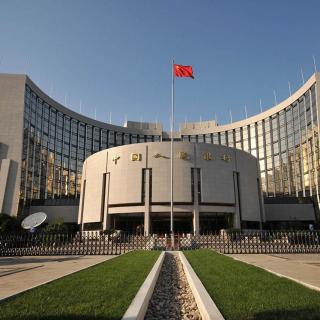
介绍:
PBOC Cuts Reserve Requirement Ratio
China's central bank has decided to cut the amount of cash the country's commercial banks must hold as reserves.
Starting from March 1, the required reserve ratio for the banks will drop by 0.5 percentage points.
The move is seen as part of the latest effort to bolster economic growth.
China's Sharing Economy Worth 1.95 trln yuan
Anchor:
The latest figure shows China's sharing economy created a market worth nearly 2 trillion yuan or 300 billion U.S. dollars last year.
According to a report released by the National Information Center, there are 50 million sharing business providers in China and they have over 500 million customers.
The report says the sharing economy will grow at an annual rate of 40 percent in the next five years, and may represent up to 10 percent of China's GDP by 2020.
The report also forecasts that more and more Chinese firms will establish themselves in the sharing economy in the next decade.
For more on this, CRI's Paul James earlier spoke with Mike Bastin, director of the China Business Center at Southampton Solent University in London.
…
Back Anchor:
Mike Bastin, director of the China Business Center at Southampton Solent University in London, speaking with CRI's Paul James.
Alibaba's Ma, Tsai Bolster Buyback With $500 Million Purchase: Bloomberg
It's being reported that Alibaba's Chairman Jack Ma and Vice Chairman Joseph Tsai have agreed to spend 500 million U.S. dollars buying the company's stock to bolster the company's share buyback.
As Bloomberg reports, Jack Ma and Josep Tsai are going to bankroll the purchase of shares currently trading at 66 dollars 91 cents.
The report also says that Alibaba announced in August Ma's and Tsai's intention to contribute to a 4 billion-U.S.-dollar buyback without revealing how much they would spend.
The buyback mainly aims at offsetting dilutions in areas such as employee compensation programs.
Alibaba's shares are trading below their initial public offering price of 68 U.S. dollars after plunging 20 percent in the past year.
The e-commerce firm is said to be struggling with slowing growth as it faces price cuts and competition in bigger cities.
Shanghai Electric's Unit to Invest in Stake in Germany's Manz
Shanghai Electric Group has announced plans to buy a nearly 30 percent stake from German machine builder Manz AG for 660 million yuan or some 100 million U.S. dollars.
According to a report by Bloomberg, depending on the size of the holding Shanghai Electric obtains, the deal may eventually lead to a mandatory buyout offer under German market regulations.
The report also says that Manz will sell new stock priced "as close as possible to the market," up to a maximum 40 euros a share, to allow the Chinese company to take a holding.
Manz is a supplier for Apple which produces equipment for the solar industry as well as machines for manufacturing smartphones and tablets.
The plan comes as the German company looks to restructure its operations and seeks to raise funds.
Manz unveiled plans in December to cut 174 jobs, or about 10 percent of the workforce, to save about 7.6 million U.S. dollars in costs.
Didi's China transactions outpace ride-hailing services in North America
Chinese ride-hailing service Didi has reported that transactions on its platform hit a record high in January, exceeding those of similar services in the United States and Canada combined.
The gross merchandise value generated from Didi's transportation services in China rose to 800 million U.S. dollars in January.
That compared with 600 million U.S. dollars generated in the same period by similar services in the United States and Canada.
The surge in transactions is said to be fueled by the continued penetration of Didi's ride-on-demand services into more than 200 lower-tier cities.
The expansion into lower-tier cities has helped Didi gain 10 million new users for its ride-on-demand services in January.
Chinese company explores Pakistan power market
The Harbin Electric Corporation, China's largest exporter of power units, is to build a new coal-fired power plant in Pakistan.
The plant, with installed capacity of 350 MW, will be located near the Bin Qasim port in Karachi.
Construction will start in July and is expected to last 31 months.
Harbin Electric has built about 30 percent of Pakistan's power stations.
Chinese Company to Produce US-designed Robots
A Chinese robotics firm is going to set up a factory to produce a U.S. company's models in China.
Hunan-based Cothink Robotics Tech Company and Boston-based Rethink Robotics have signed an agreement in Changsha, capital of central China's Hunan Province, with the city government as a third party.
Under the deal, the two companies will work together to launch Rethink's first production base in China, which would have an annual capacity of 2-thousand robots.
Rethink Robotics estimates that the products will have a broad market in China, as they can replace a human workforce in dangerous work or tasks requiring high precision.
China is currently the world's largest market for industrial robots.
S. Korea's business confidence worsens to 7-year low
Data from South Korea's central bank shows confidence among South Korean businesses over economic conditions in the country worsened to its lowest level in almost seven years in February.
Business sentiment index among manufacturers declined 2 points from the previous month to 63 in February, posting the lowest since March 2009.
The reading below 100 means pessimists outnumbered optimists.
The figure is based on a survey of over 17-hundred manufacturers and about 11-hundred non-manufacturers.
The downward trend came amid growing uncertainties facing the South Korean economy such as the global economic slowdown, especially in emerging economies, and consequent export slump in South Korea.
Business confidence has also been rattled by rising geopolitical risks on the Koran peninsula after North Korea's recent rocket launch and nuclear test.
大家还在听

